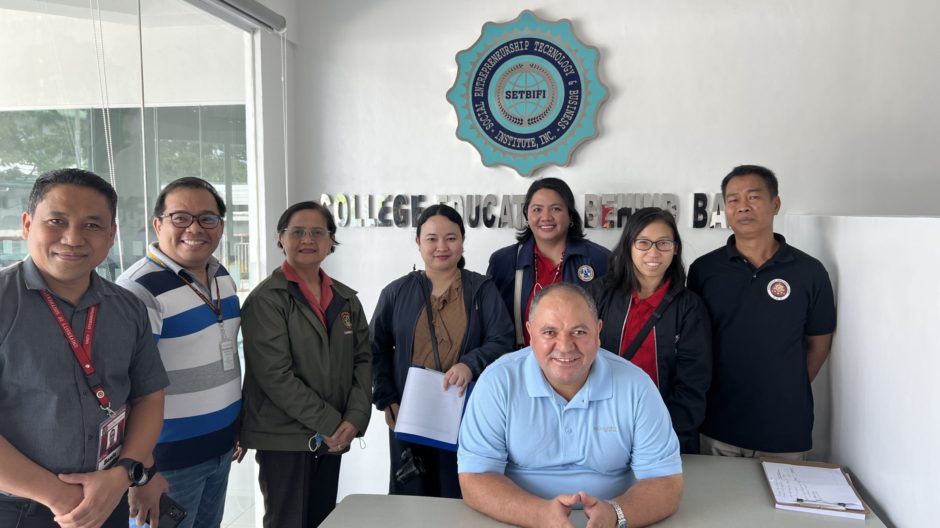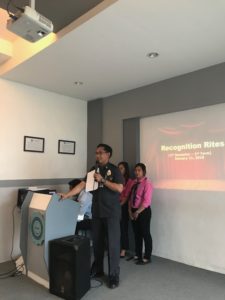
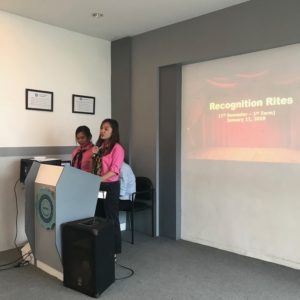 Some of the students admit that they wanted to accomplish lots of thing in their lives, but finished
Some of the students admit that they wanted to accomplish lots of thing in their lives, but finished 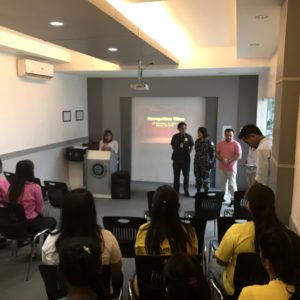
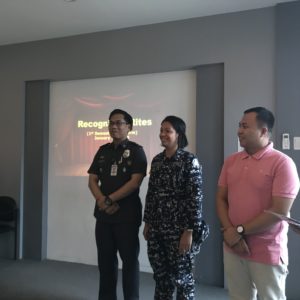 very few.
very few. 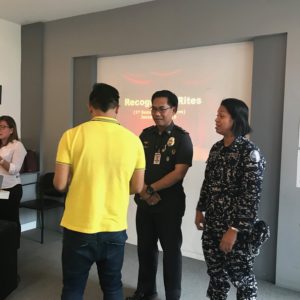 That is changing. Most of the senior high school students from Davao City Female Jail received honor certificates from Thompson Christian School. "This is a first step for my future," said one of the students. "I've finally done something good in my life, and that means a lot to me." “This kind of program helps me to discover my potential and believe in myself.” “I don’t think I ever saw potential myself, and this has given me the confidence that there is a potential in us and in me.” “There are other ways to make a living [besides selling drugs or using the drug. College Education Behind Bars has more than 100 inmates enrolled in classes now. I would like to congratulate Davao City City Female Jail warden, Rovie Ann Noe Alcantara, for encouraging inmates to do well in the College Education Behind Bars program. I would also like to congratulate newly installed Davao City Male Warden, Presco Manisan, for his new position and express gratitude for his full support for education of the inmates inside the jail.The Social Entrepreneurship Institute (SEI), by
That is changing. Most of the senior high school students from Davao City Female Jail received honor certificates from Thompson Christian School. "This is a first step for my future," said one of the students. "I've finally done something good in my life, and that means a lot to me." “This kind of program helps me to discover my potential and believe in myself.” “I don’t think I ever saw potential myself, and this has given me the confidence that there is a potential in us and in me.” “There are other ways to make a living [besides selling drugs or using the drug. College Education Behind Bars has more than 100 inmates enrolled in classes now. I would like to congratulate Davao City City Female Jail warden, Rovie Ann Noe Alcantara, for encouraging inmates to do well in the College Education Behind Bars program. I would also like to congratulate newly installed Davao City Male Warden, Presco Manisan, for his new position and express gratitude for his full support for education of the inmates inside the jail.The Social Entrepreneurship Institute (SEI), by 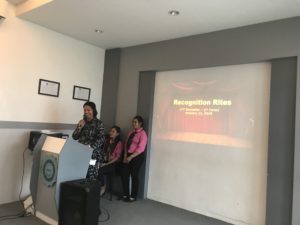 partnering with the Bureau of Jail Management and Penology (BJMP) and with the University of Southeastern Philippines (USEP), has initiated a “College Education Behind Bars” project at the Davao City Jail. This program aims to provide the inmates, both male and female, who are mostly drug offenders, the means to advance their education in prison. Inmate students enroll in the University of Southeastern Philippines, read the same university-assigned textbooks, and complete the equivalent college level assignments as the “outside” college students, and when they graduate, they receive a four-year diploma from the USEP for having completed its college program. The only differences is that the USEP faculty will travel to the Davao City Jail to teach courses there, instead of on the USEP campus. This program is the first of its kind in the Philippines as well as in Asia because it incorporates recovery with formal education.
partnering with the Bureau of Jail Management and Penology (BJMP) and with the University of Southeastern Philippines (USEP), has initiated a “College Education Behind Bars” project at the Davao City Jail. This program aims to provide the inmates, both male and female, who are mostly drug offenders, the means to advance their education in prison. Inmate students enroll in the University of Southeastern Philippines, read the same university-assigned textbooks, and complete the equivalent college level assignments as the “outside” college students, and when they graduate, they receive a four-year diploma from the USEP for having completed its college program. The only differences is that the USEP faculty will travel to the Davao City Jail to teach courses there, instead of on the USEP campus. This program is the first of its kind in the Philippines as well as in Asia because it incorporates recovery with formal education.
Currently, the Davao City Jail has undertaken a teaching program, an initiative of the Department of Education of the Philippines called the Alternative Learning System (ALS) for those who want to finish high school, but the Ma-a Jail offers only Grade 10 and does not have the senior high school (SHS) program. The
Social Entrepreneur Institute, the Bureau of Jail Management and Penology, Thompson Christian School, and the Department of Education in the Philippines (DepEd) initiated the Senior High Program at the College Education Behind Bars. Senior high students register at TCS, graduate from that K-12 institution, and get their diploma from TCS. TCS will send the teachers to the SEI’s College Education Behind Bars facility to teach SH students. TCS also provides modules for SH students to follow. SH students enroll in Thompson, read the same school -assigned textbooks, and complete the equivalent SH level assignments as the “outside” SHS students. The only differences is that TCS teachers travel to the Davao City Jail, like USEP faculty, to teach courses there, instead of at
